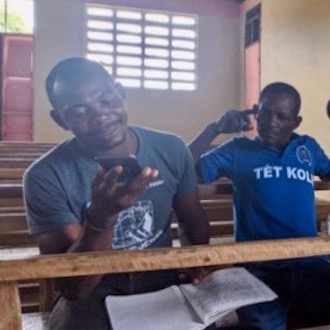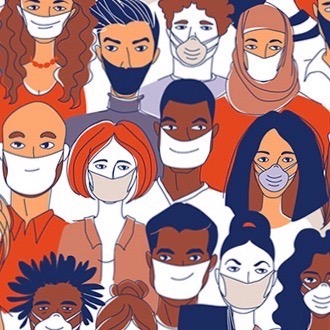Research Tools
Tools for Remote Community Engagement
Faced with the need to communicate with farmers dispersed across rural northern Haiti, Accountability Counsel’s research team developed Zwazo, a flexible surveying tool built on a Twilio API that enables community feedback and fosters access to information. Since its creation in early 2019, our team and partner organizations have used Zwazo to communicate in real time with client communities facing environmental and human rights abuses, even in areas with no internet access, limited adult literacy, and low smartphone adoption rates. Messages or questions can be distributed as text, WhatsApp, or voice messages, allowing recipients to respond either with keypresses or by recording a verbal response when prompted. This adaptable functionality allows for rapid, locally-grounded two-way communication tailored to the needs of communities and their advocates. Among other uses, the Haitian farmers have used Zwazo to:
- Alert vulnerable communities to health and safety risks around coronavirus;
- Identify which subset of a group may be eligible to receive specific livelihood restoration benefits; and
- Uncover problems faced by marginalized communities that had been previously unheard or disregarded by authorities.
What makes Zwazo unique is not the technology itself, but its community-driven nature. Zwazo infuses Twilio’s framework with local grassroots expertise developed over a decade advocating alongside communities harmed by internationally financed projects. Accountability Counsel built the system in close consultation with community partners in Haiti and around the world, and continues to build on its functionality. It is now a critical component of a broader structure of outreach, consultation, communication, and transparency that Accountability Counsel brings to all its cases.
The code used to develop Zwazo is open source. To further increase accessibility for local partners and other interested parties, the Research team has built a simplified version, Asfour, that can be used directly and with limited training by third parties. In the first half of 2020, Asfour has already been used by service organizations to send over 2,000 messages about COVID-19 to at-risk communities from the San Francisco Bay Area to northern Haiti, and has logged several hundred responses as well.



